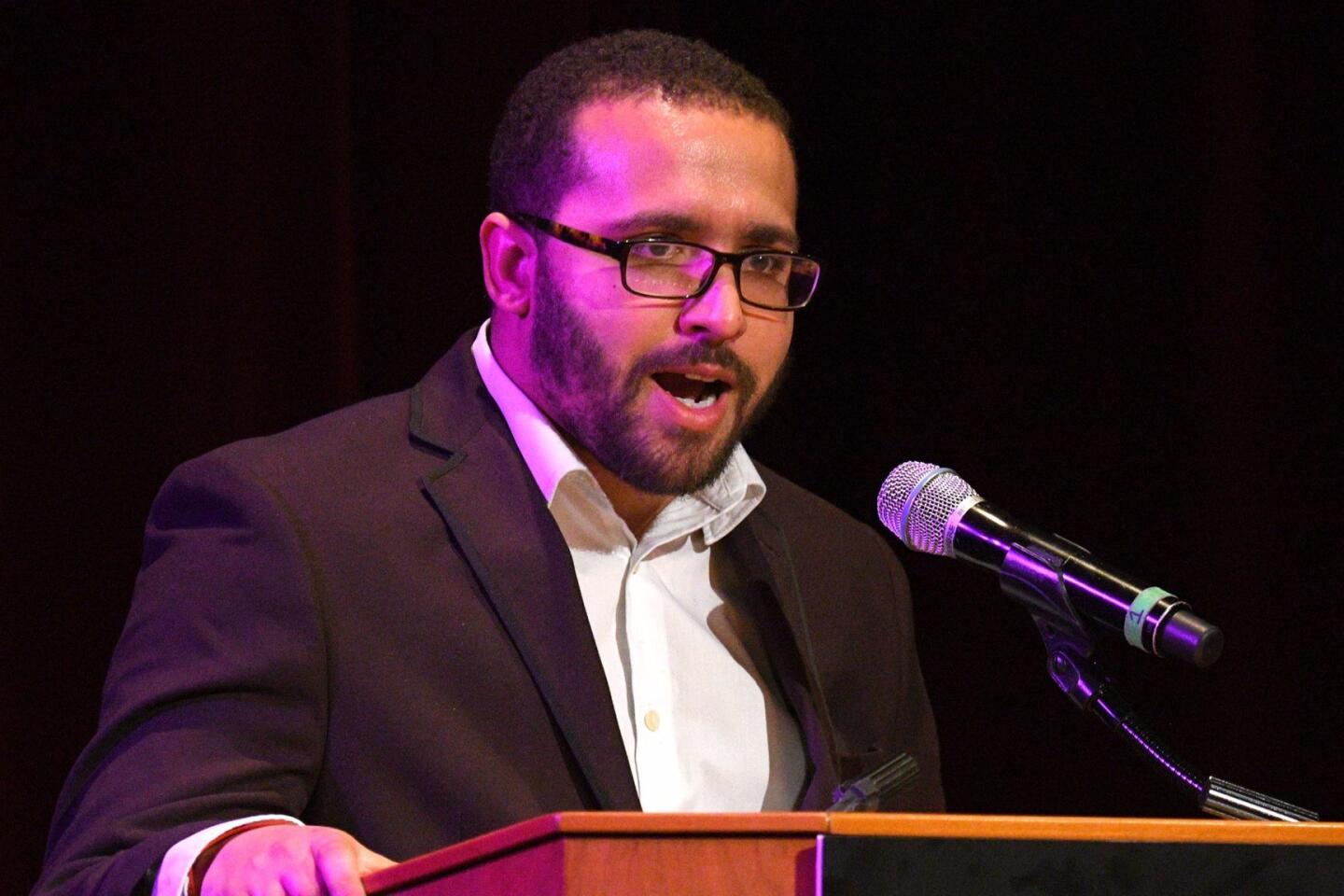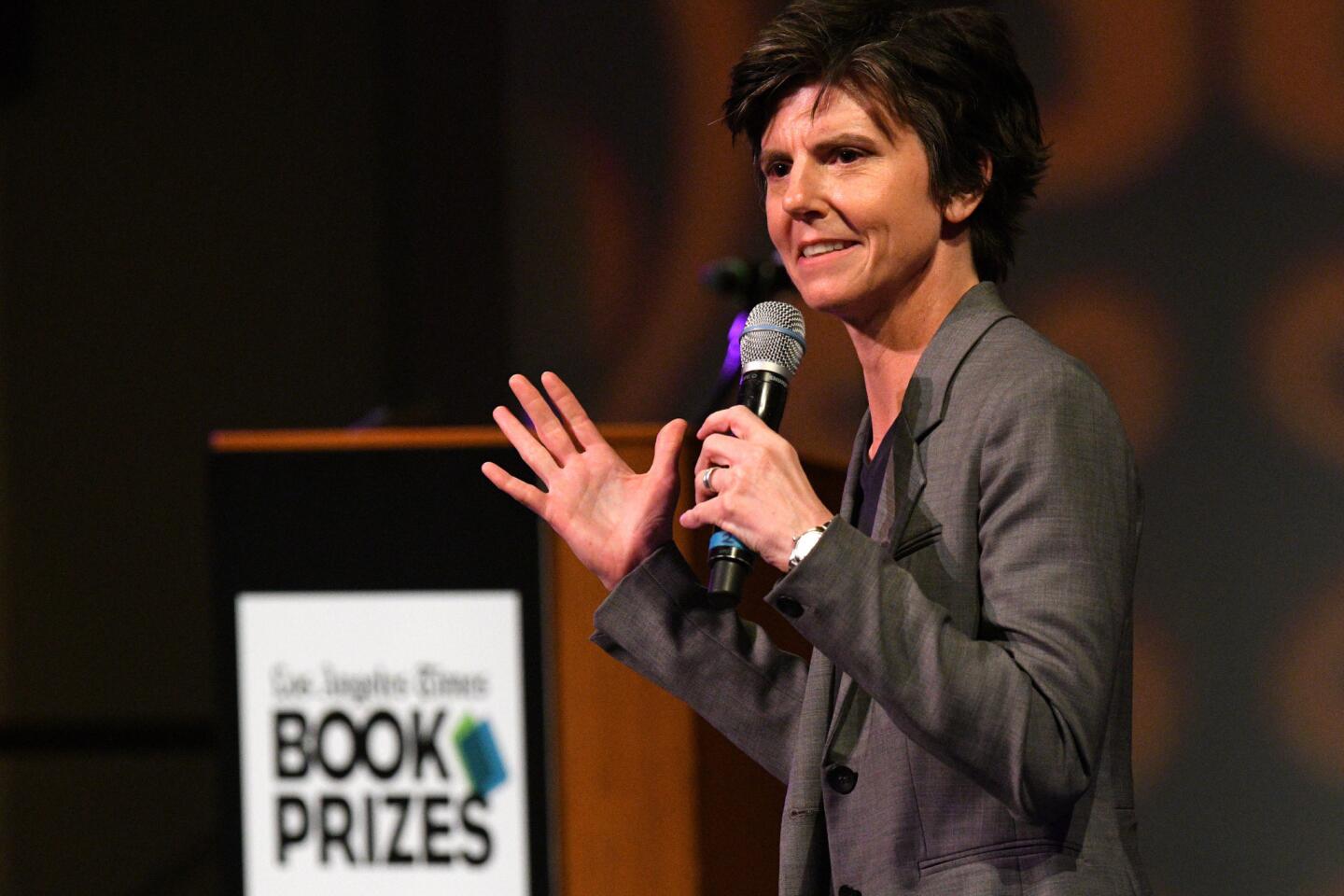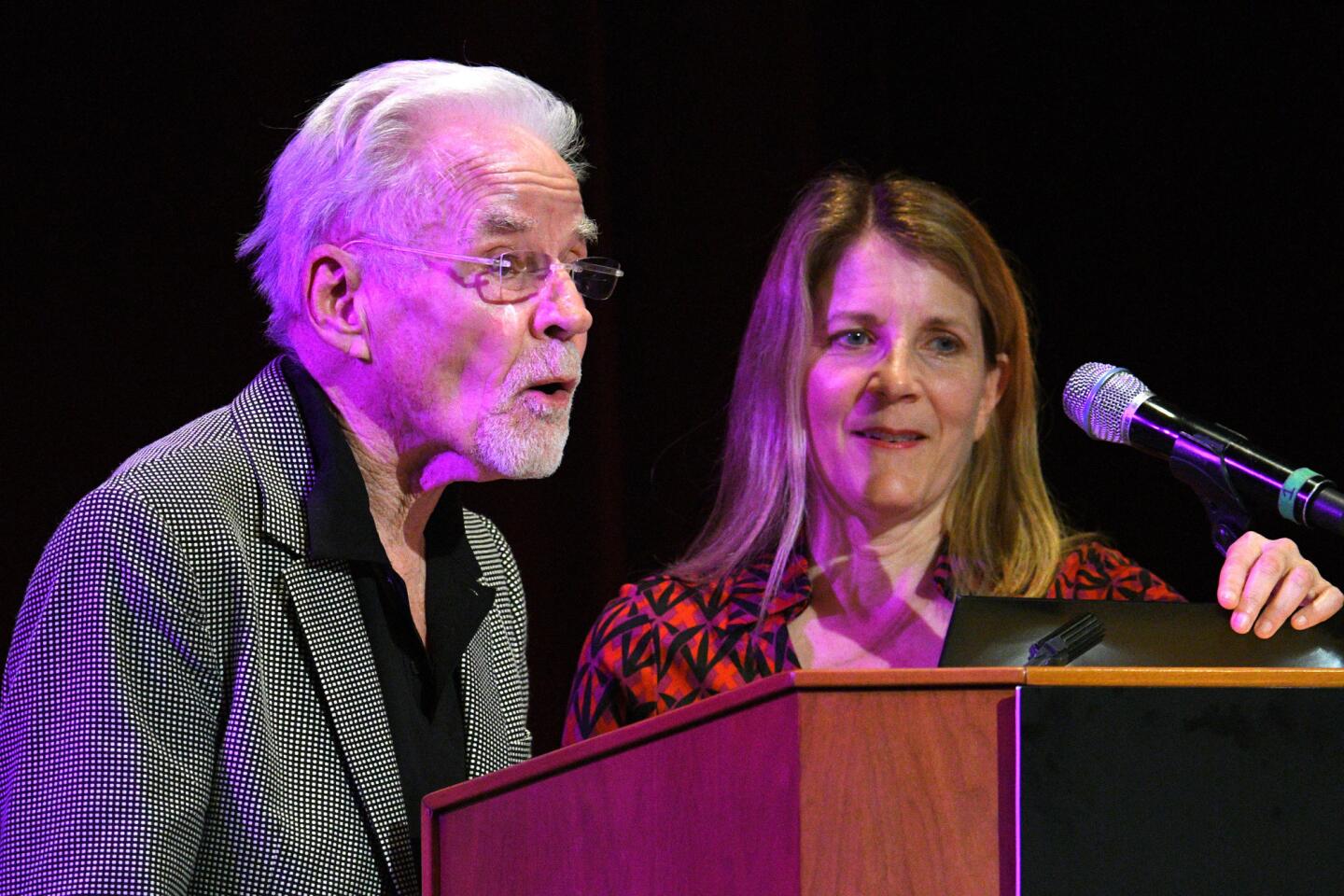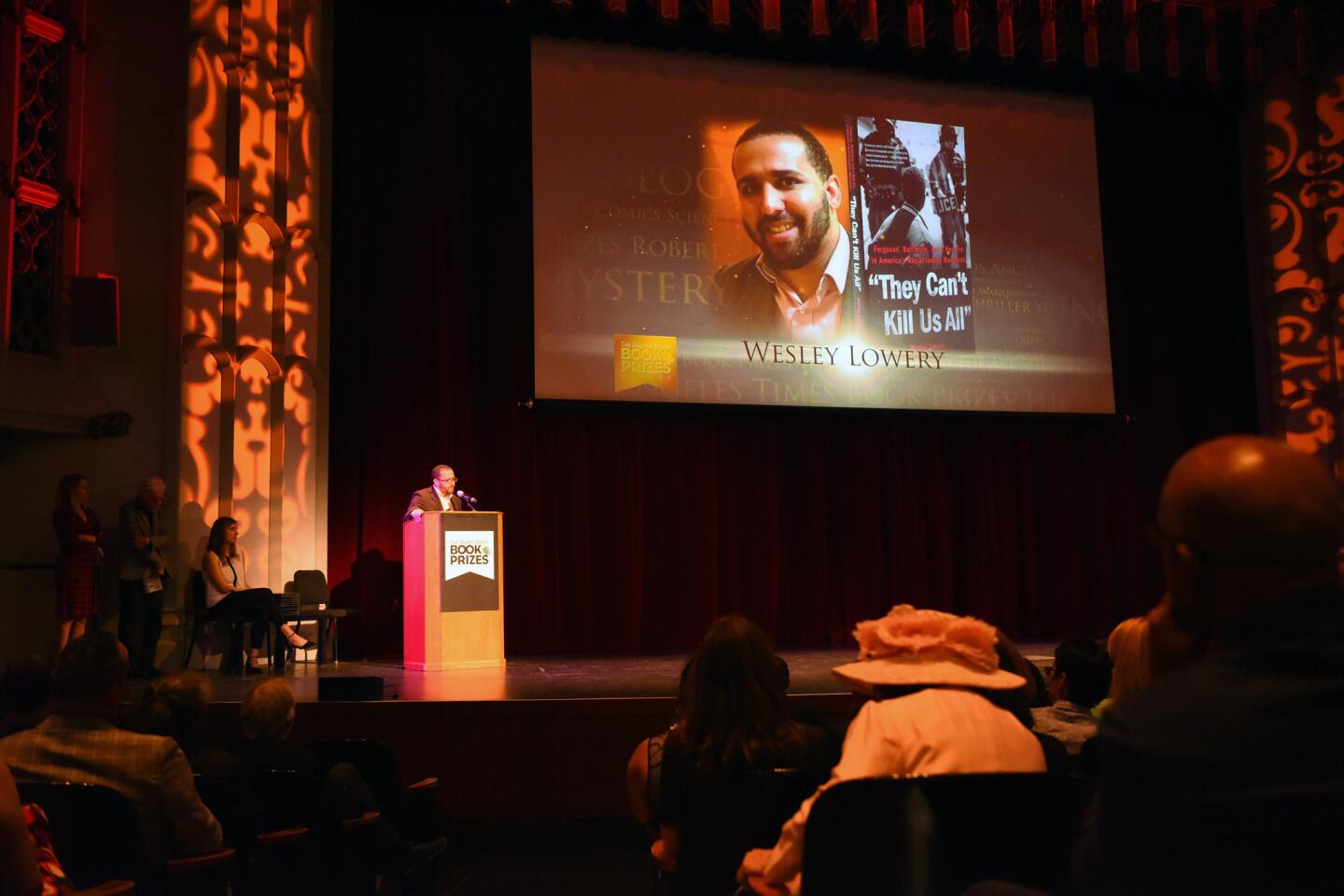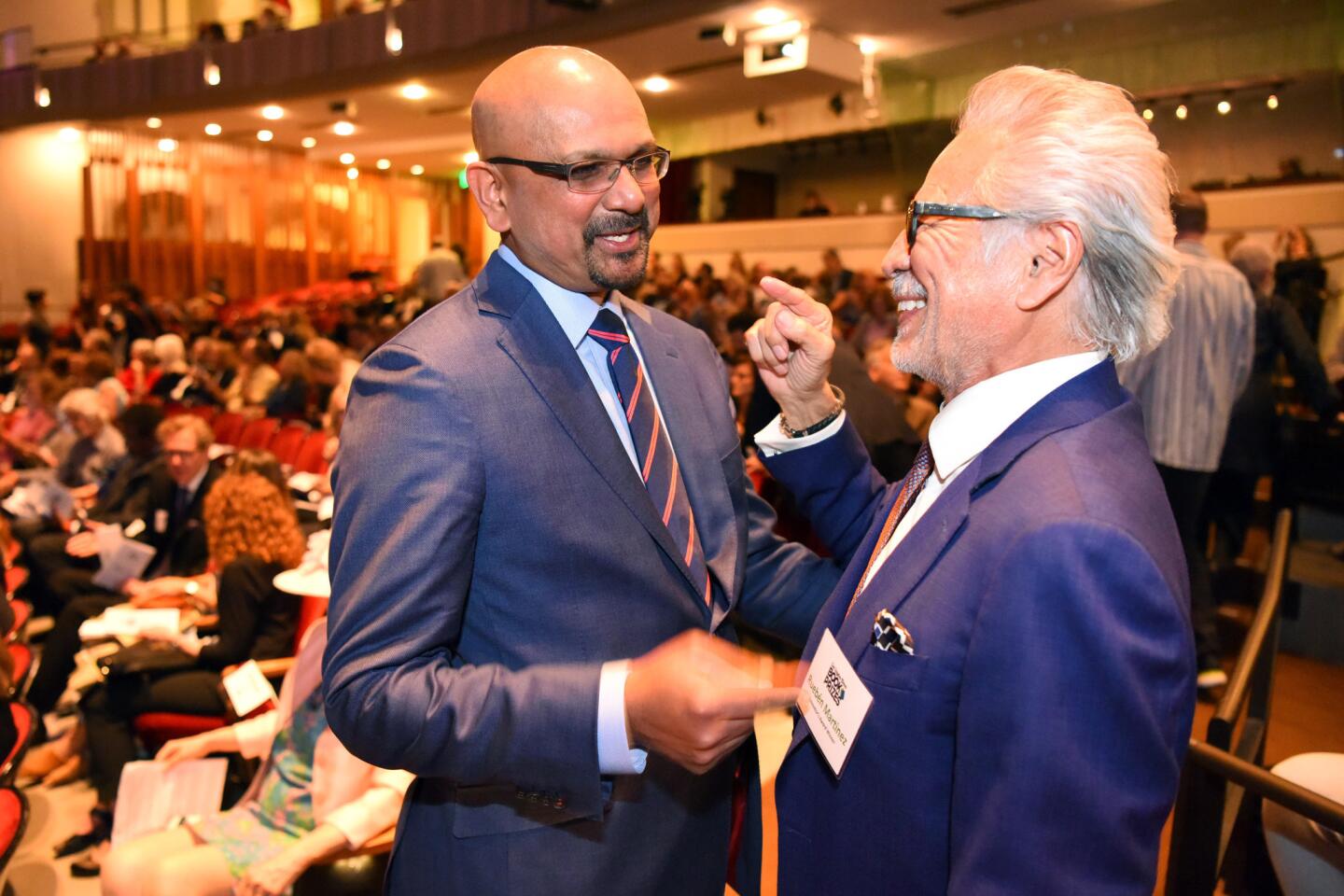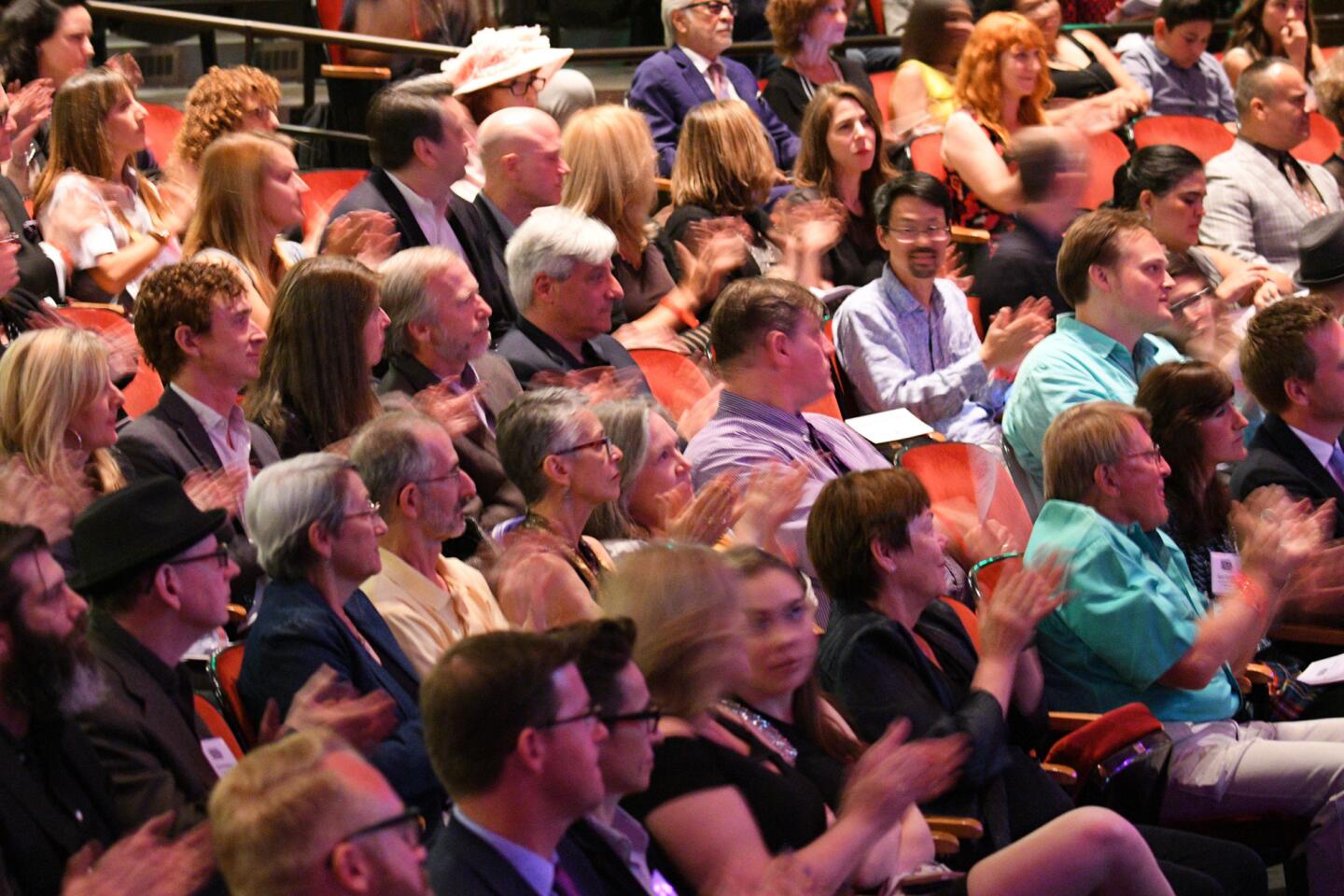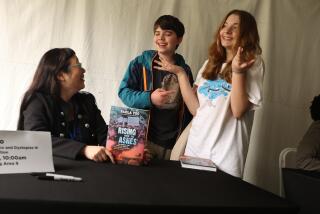L.A. Times Book Prizes winners announced
Books on police shootings of black men, the history of the plummeting numbers of California’s Native Americans and the tale of how Adolf Hitler led the Nazi party to power were among the honorees of the 37th annual Los Angeles Times Book Prizes.
The awards were presented Friday night at USC, hosted by comedian Tig Notaro, just before the opening of the two-day L.A. Times Festival of Books, which will bring together more than 400 authors speaking at events on Saturday and Sunday.
Among the honorees was first-time author Wesley Lowery, who won the Christopher Isherwood prize for autobiographical prose.
Updates from the L.A. Times Festival of Books »
As a reporter for the Washington Post, Lowery wrote about the fatal shooting of Michael Brown in Ferguson, Mo., and subsequent shootings of black men by police across the country and the protests known as the Black Lives Matter movement that followed. Lowery was previously a reporter for the Los Angeles Times.
A Times review said his book, “They Can’t Kill Us All,” read like an “anatomy of a national uprising in the wake of extraordinary black pain — a forced reconciliation with an already deep distrust of the police by black America and a justice system that is meant to protect and serve us all.”
“In the moment we live in now, it’s important to remember a saying I picked up from one of the young people I write about in this book,” Lowery said Friday night. “He says, very often, that to tell the truth in public is an act of protest.”
The 2015 winner of the Nobel Prize in Literature, Svetlana Alexievich, won for her latest book, “Secondhand Time: The Last of the Soviets,” recounting what ordinary men and women went through during the fall of the Soviet Union and the rise of a new Russia.
Two honorees delved into dark moments of history. Volker Ullrich’s “Hitler: Ascent, 1889-1939” covers how the Nazi leader was able to use a combination of political savvy and ruthlessness to come to power. Benjamin Madley’s “An American Genocide” tells the story of how California’s native population plunged from 150,000 to 30,000 within a generation of the Gold Rush, and who did the killing.
Other winners delved into journeys of discovery.
For young adult literature, “The Lie Tree,” by Frances Hardinge, told the tale of a young woman unable to resist investigating her scientist father’s slaying. In the mystery/thriller category, the award went to Bill Beverly’s “Dodgers,” a coming-of-age fictional story of a young L.A. gang member sent by his uncle to kill a witness hiding in Wisconsin.
“It’s wonderful to be back in this city,” Beverly said. “It’s the city I dreamed of when I was a kid, despite my parents telling me — or maybe because of my parents telling me — that it was full of crazy people.”
Nathan Hill won the Art Seidenbaum Award for First Fiction for “The Nix,” about a college professor who uncovers buried family secrets when his mother, who abandoned her family when he was a boy, is accused of committing an absurd crime.
“This is the first acceptance speech I’ve given for anything,” Hill said. He thanked the Book Awards for bringing him to California “while it’s still part of the country,” and his wife, who spent a decade reading his novel in the order he wrote it, a few pages at a time.
Adam Haslett’s novel, “Imagine Me Gone,” was honored in the fiction category, telling the story of what happens when a woman must decide between marrying a man she discovers suffers from depression or leaving him — and how far someone will go to save a family member. “Imagine Me Gone” was a finalist for the Pulitzer Prize in Fiction.
And honored in the science and technology category was “Patient H.M.,” in which author Luke Dittrich investigates the past of his grandfather, described as a brilliant yet morally complex surgeon who conducted relentless experimentation, and performed a radical new version of the lobotomy that left a 27-year-old factory worker, Henry Molaison, unable to create long-term memories.
In his opening remarks, Times Editor and Publisher Davan Maharaj said the responsibility of writers is to be relentless, expose hypocrisy, speak truth to power and to “capture in our prose and poetry” the state of the world.
“Let us be brazen in our expression, forthright and assured, for one day, our work will be judged,” Maharaj said. “There will be a time when future generations look to us for inspiration.”
The list of winners:
Christopher Isherwood prize for Autobiographical Prose: Wesley Lowery, “They Can’t Kill Us All”
Art Seidenbaum Award for First Fiction: Nathan Hill, “The Nix”
Current Interest: Svetlana Alexievich, “Secondhand Time: The Last of the Soviets”
Mystery/Thriller: Bill Beverly, “Dodgers”
Poetry: Rosmarie Waldrop, “Gap Gardening: Selected Poems”
Robert Kirsch Award for Lifetime Achievement: Thomas McGuane, whose books include “The Sporting Club,” “Ninety-Two in the Shade” and “Driving on the Rim”
Biography: Volker Ullrich, “Hitler: Ascent, 1889-1939”
History: Benjamin Madley, “An American Genocide: The United States and the California Indian Catastrophe, 1846-1873”
Young Adult Literature: Frances Hardinge, “The Lie Tree”
Graphic Novel/Comics: Nick Drnaso, “Beverly”
Science & Technology: Luke Dittrich for “Patient H.M.: A Story of Memory, Madness, and Family Secrets”
Fiction: Adam Haslett, “Imagine Me Gone”
Innovator’s Award: Ruebén Martinez
ALSO
Meet Chanelle Benz, whose debut book is ‘The Man Who Shot Out My Eye Is Dead’
Adam Haslett, L.A. Times Book Prize finalist, discusses ‘Imagine Me Gone’
From ‘Trump Survival Guide’ to ‘Hillbilly Elegy,’ book publishing turns to all things political
More to Read
Start your day right
Sign up for Essential California for news, features and recommendations from the L.A. Times and beyond in your inbox six days a week.
You may occasionally receive promotional content from the Los Angeles Times.
